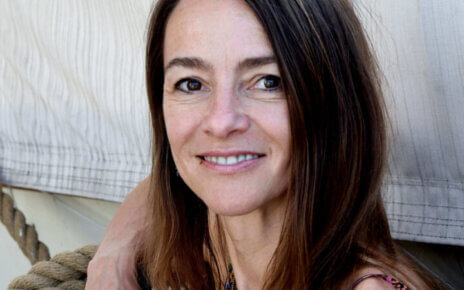The University has been acknowledged by four different organizations as one of the best universities in the country for war veterans and military students in 2015.
According to a press release, the University was named one of the “2015 Best Colleges for Veterans” by U.S. News & World Report. Additionally, the Military Advanced Education’s Guide to Colleges and Universities named the University a top school in 2015.
The University was also recognized as a “Military Friendly School” by Victory Media, a “Best for Vets College” and “Best for Vets Business School” by Military Times.
“The University has been committed to ensuring war veterans feel comfortable transitioning to the college lifestyle,” said Jeff Hood, the University’s Coordinator of Veteran Services.
“Recognition as a top national program that prepares our students to compete and succeed is always an honor, especially for students who are active members of our community, both in and out of the classroom, and who have already given so much to our country,” said Paul R. Brown, President of the University in a press release.
The Office of Veteran Services contributes to the success of veteran students at the University, according to Mary Anne Nagy, Vice President for Student Life and Leadership Engagement who also oversees veteran services.
The office “was created to provide a point of contact for the distinctive needs of our veteran students,” according to the University’s website.
“It is important that Monmouth has a one stop shop where veterans can go to get assistance for any of their questions or concerns,” said Nagy.
“Not every campus has this kind of support or a specific veteran office. It is also important that we have a full time person (Jeff Hood) to help students.”
When veterans are looking to acquire some of the benefits the University has to offer, “the biggest thing is to talk to admissions and immediately contact Jeff Hood. It is also important to talk to some of the vets that are here right now,” said Nagy. “The earlier they understand the benefits the better off they are to fully take advantage of the services at the University,” she continued.
Hood said that it is a team effort to ensure veterans feel comfortable at the University and that Monmouth is considered one of the top universities for veterans because of the programs that are offered.
He emphasized the importance of ‘The Bridge Program,’ which is something “almost every vet makes use of,” said Hood.
“The Bridge Program is our way of thanking all veterans who served and were given an honorable discharge,” according to the University’s official website.
“Under this program, you are able to bypass normal admission requirements (such as SATs), and you are granted one initial semester. After achieving the required grade point average, you will reapply and be accepted as a degree-seeking student,” the website continues.
Students involved with this program will need a minimum of a 2.25 cumulative grade point average in order to transition to a degree-granting program.
Nagy discussed how campus size has an effect on veteran students. “Monmouth is big enough to offer what they need and small enough to offer one on one relationships,” she said. “Our veterans actually get jobs and employers are often sensitive to the fact that they have served our country.”
The Veteran’s Association present on campus is also helpful to veterans enrolling at the University, according to Hood.
“The Veteran’s Association was formed by a group of students who set the goal of promoting growth, understanding, awareness and charity for all veterans attending Monmouth University,” explains the University’s official website. The Veterans Association is a student run organization and any student is welcome to join.
“The association helps to accommodate everybody,” said Thomas Szot, a member of the Veteran Association at Monmouth who is also a war veteran. “Most of us are 23 or 24-years-old, older than the average freshman. The association helps create a sense of community amongst the vets at Monmouth,” Szot continued.
Szot, who is a sophomore finance major, said that his transition to Monmouth was easy. “I had no problems engaging with other students and the transition was not hard at all.” Szot said that help was very accessible and that he was happy with the size of the University as it allowed him to make connections.
Having student veterans present at the University is beneficial and adds to the campus. “Our active military and veteran students bring an invaluable diversity of real-world experience to our residential coastal campus,” explained Brown in a press release.
IMAGE TAKEN from cololines.com




